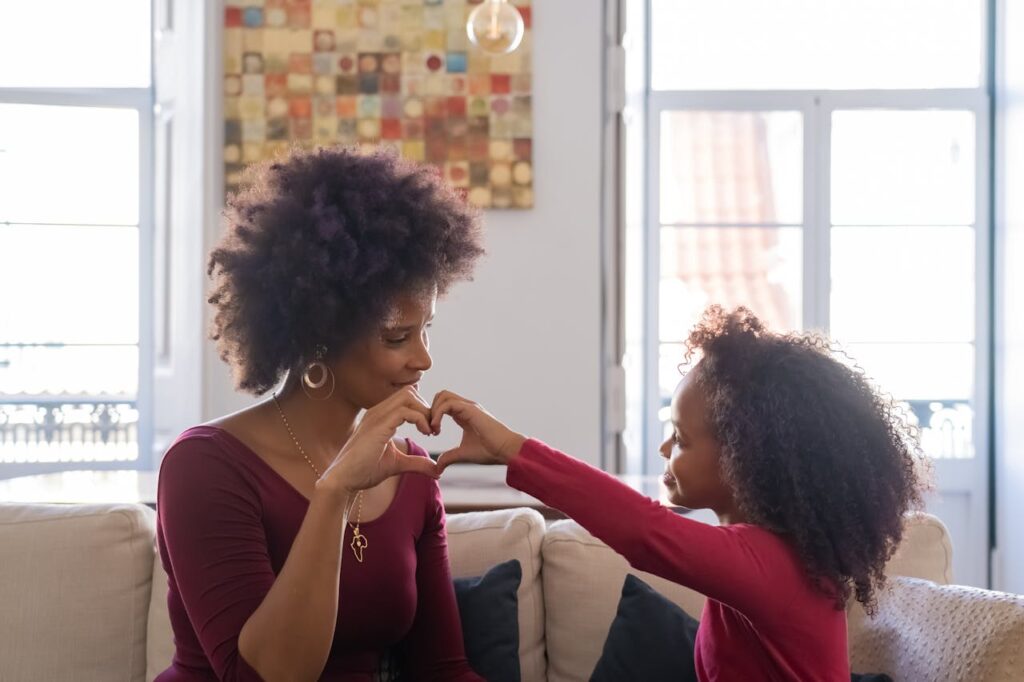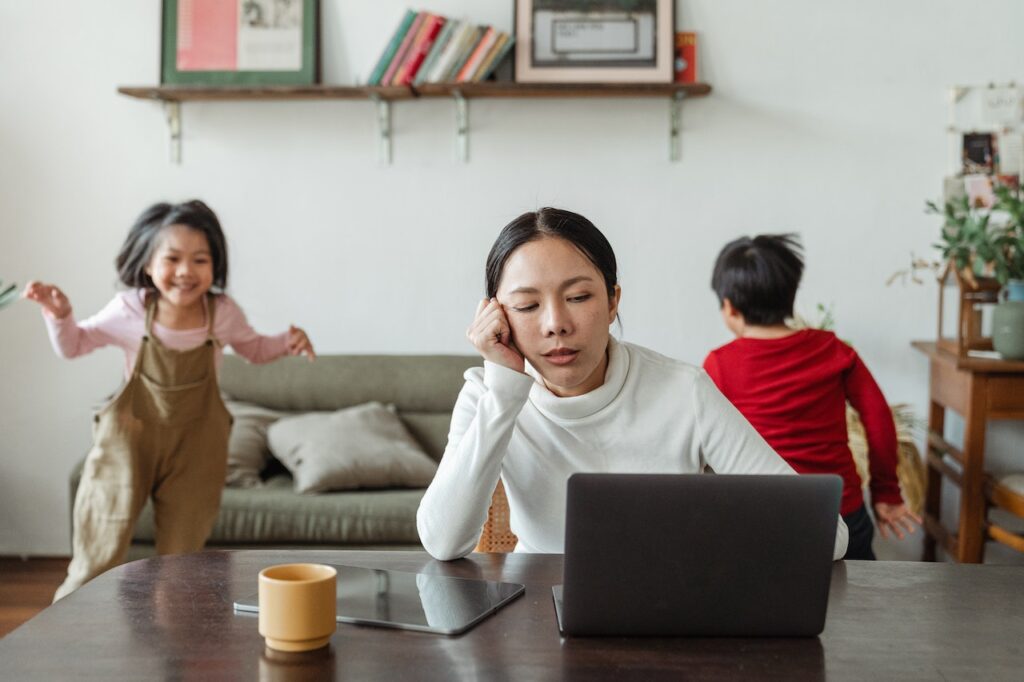In this article, we’ll explore how to build teacher-student relationships in homeschooling. It is uniquely personal, often shaped by the close bond between parent and child.
This dynamic creates a nurturing environment where trust, understanding, and open communication thrive, fostering a strong foundation for learning. Unlike traditional classroom settings, homeschooling allows for a tailored approach to teaching, making it easier to address individual needs, interests, and challenges.

A positive teacher-student relationship in the homeschool setting not only enhances academic growth but also supports emotional well-being and lifelong learning habits. Building this connection is key to creating an engaging and supportive educational experience.
In this article we look at the four ways parents and child can connect in the homeschool classroom in forming the “teacher-student” relationships by discussing four important elements that make for a long lasting connections between teachers and students in any classroom.
The approach teachers should take from day one, is one that is transparent to the students that the teacher is firm but kind.

Click to view our selection of digital products.
Building Relationships with Promptly Journals
This blog contains shareasale affiliate links to highlighted websites and/or resources. By clicking on the link and making a purchase we may earn a small commission at no extra cost to you. Click here for full disclosure.
Journals are a geat way to build relationships by providing children and parents ways to document their history and in that highlighting ideas, thoughts, emotions to record for years to come.
Promptly Journals offers a variety of journals; one in particular allows parents and children document life from the moment of birth.
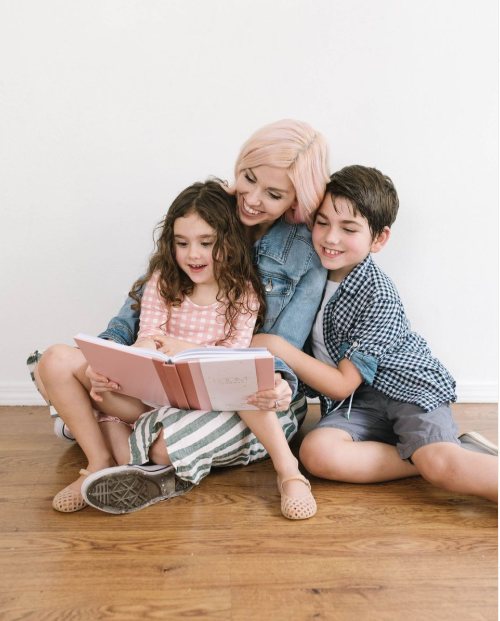
Visit Promptly Journals to see this journal type and more today!
With firmness, parents can show that the classroom is a place for learning, where knowledge is important, and communication works to improve our time management, organizational, and problem solving skills.
Classroom rules can be established with ease, classroom management shows responsibility, discipline is self-regulated, and learning is a success for everyone!
With kindness, parents as teachers can demonstrate to stheir children as tudents that they are in the classroom to help them succeed.

Kindness opens the door to improved communication between teachers and students and begins to foster the all important trust that is necessary to begin the student-teacher relationship.
When students begin to believe that their teacher cares about them, they can begin to trust them.
Firmness or Kindness – Which Comes First in Teaching?
Before the students come into the classroom, teachers should have it organized it a way that shows students it is a warm and welcoming place, but that it also a place where learning happens – that is firmness!
Teachers should of course show kindness when first meeting their students and getting to know who they are!
Much like the food we eat, there must be a balance of attributes teachers show students. Teachers who are memorable to their students know how to keep the right balance between firmness and kindness with their students.
In other words, even when the teacher is being firm with them, students never forget that their teacher is also kind.
4 Elements in Building Teacher-Student Relationships In Homeschooling
These four important elements are:
- Respect
- Communication
- Intuition
- Attitude
These four elements come in no particular order, but for the sake of this article we are keeping mind the student-teacher relationship.
I. Respect
The word respect comes with some important weight. Students who are in their early years in school, tend to give this (i.e. respect) out freely to teachers and students alike. Yet when they seem to get older – not so much.
But why is this the case? Students in their early years are coming from the environment where their parents have more of an influence over their behavior. However, as they spend more time in school they are more influenced by their peers around them.
Generally speaking parents teach their children to respect their elders and those around them. The teacher also continues this expectation and is firm with this when establishing classroom rules and proper behavior.
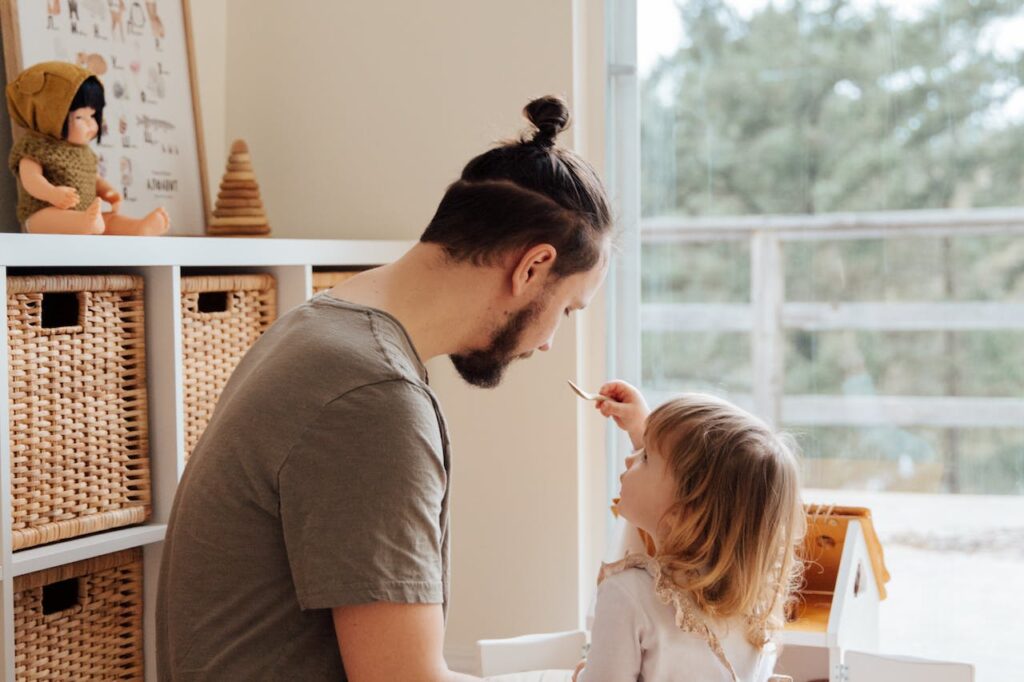
As students spend more time around their peers, their attentions shifts more from earning the respect of their teacher, to earning the respect of their peers.
How then can teachers maintain a good relationship with students as they get older? By being more transparent with their expectations as they require students to carry more responsibilty.
a. Transparency is Key
Teachers expect students to be transparent in all that they do in the classroom. Teachers should also show transparency to students when asking students to complete tasks or model behavior.
In other words, teachers should do as they say, and be the role model of good behavior they expect from their students. Teachers who adopt the “do as I say, not as I do” mentality will have students who are disrespectful.
Teachers need to lead by example if they want students to respect them. Those who respect their students show a firmness of character when they expect their students to show them respect.
This helps build kindness that both will seek, and will make communicating with each other all the more easy.
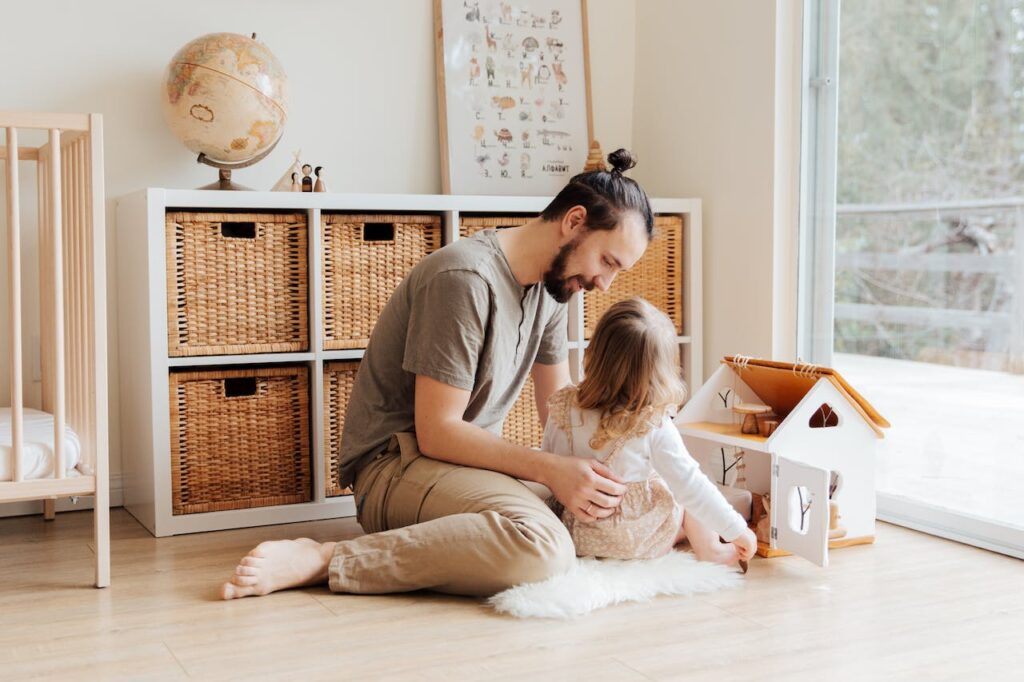
In communicating between one another, teachers and students need to be aware of their intentions for saying what they mean, and meaning what they say.
II. Communication
Once again, students take their cues from teachers. When teachers are open and honest with students in communication, trust is built and students will learn how best to communicate with each other.
Choosing the correct way to say something to a student, whether it be good or bad, can make for a big impact on a student’s mental health.
Often times, if the intention is not clear, misunderstandings can cause problems for both teachers and students. That is why when communicating, it is best to know when to listen, and when to speak.
b. Timing is Everything
Choosing the right time to say something can be tricky for both students and teachers, especially if problems with discipline or classroom management begin to show.
Students who are causing disruptions in class, shouldn’t be dismissed as trouble makers and sent packing to the office. Instead they should be heard and learn that if they want to be heard, that they also need to listen to others.
Taking a calm and rational approach to communicating means teachers can use their intuition to see when best to ask the right kinds of questions. The right kinds of questions being those that allow students to trust that what they say will be heard and understood by their teachers.
Teachers who are open to learning from their students make for more caring and compassionate teachers. By openly acknowledging to their students that they are willingly to learn from their students, they begin to showcase one important skill – that of inuition.

III. Intuition
A teacher’s best skill is intuition. Why? In a classroom full of students not every child is the same. Not every child will tell you what they think.
Those students who have a hard time with sharing their thoughts or ideas need different approaches or timing to allow them to shine through.
On the other hand, students who find it easy to share what they think may give an insight to the teacher when it is best to either call on these students or avoid calling on these students during teacher evaluations!
Therefore it is better for teachers to use their intuition to either solve problems or avoid ones from starting!
c. Emotions in Relationships
As you have just read, intuition is not an easy skill to master since it requires the teacher to actually care about the students in the classroom enough to make such distinctions between students.
Teachers, just like comedians, use their intuition for perfectly timed jokes that make everyone laugh and relaxed enough to take in what is being said so learning can take place.
Allowing for emotions to help with learning can work to strengthen the relationship students and teachers form for most of the school year and perhaps for the rest of their lives.
Dealing with emotions from students may be challenging, especially when the words they have chosen to share may be hurtful to the teacher or to others.
And so responding to challenging words requires intelligence in the choice of words and the right kind of attitude, which let’s face it, like a good pair of shoes, is not always easy to find.

IV. Attitude
A good pair of shoes is essential for teachers, even more so than coffee, because a good pair of shoes can keep you as a teacher comfortable enough to face whatever comes your way!
As part to the teaching field, knowing how to calm a situation involving students, or parents when school policy is not part of the equation all comes down to attitude.
Teachers and their attitudes towards students (and parents) means that teachers of recent generations are walking a tight rope. Even with the best intentions, the wrong word can cause problems that no one could have foreseen.
Therefore, as with most aspects to teaching, finding the right words to say is as challenging as finding the right pair of shoes that will keep you feeling comfortable all day long.
d. The Right Pair of Shoes
If you think about it, our feet are our first line of defense when it comes to feeling comfortable. If we are not comfortable we may not be the best company to be around.

Teachers who have been in the field for many years will agree that in taking care of your feet, you can find the energy needed to take care of those students who need more attention than most.
Even with bad weather, teachers know that with a good pair of shoes, pretending to enjoy, what you deem as bad weather, may just get a little easier with time.
Note for the experienced teacher; you will know which words need to be replaced and with what words to replace them with in the previous statement.
The Teacher Student Relationship Video
Click to watch the video below to learn more about building good relationships between teachers and students .
Related Topics
Connect to our other pages as you navigate through our website. Explore what these pages have to offer you and you will be glad you did!
- Six Summer Time Activities At Home Kids Will Love
- A Creative Approach to Teaching About International Women’s Day
- 5 Ways to Improve Physical Health in Kids At Home
- The Influence of Parents on Education Policy
- How Laughter Makes Learning Fun and Effective for Kids
- Helping Parents Understand Online Learning Platforms
- 10 Top Brain Foods for Students
- Teaching Kids to Master the Art of Communication
Join Our Newsletter Community Today!
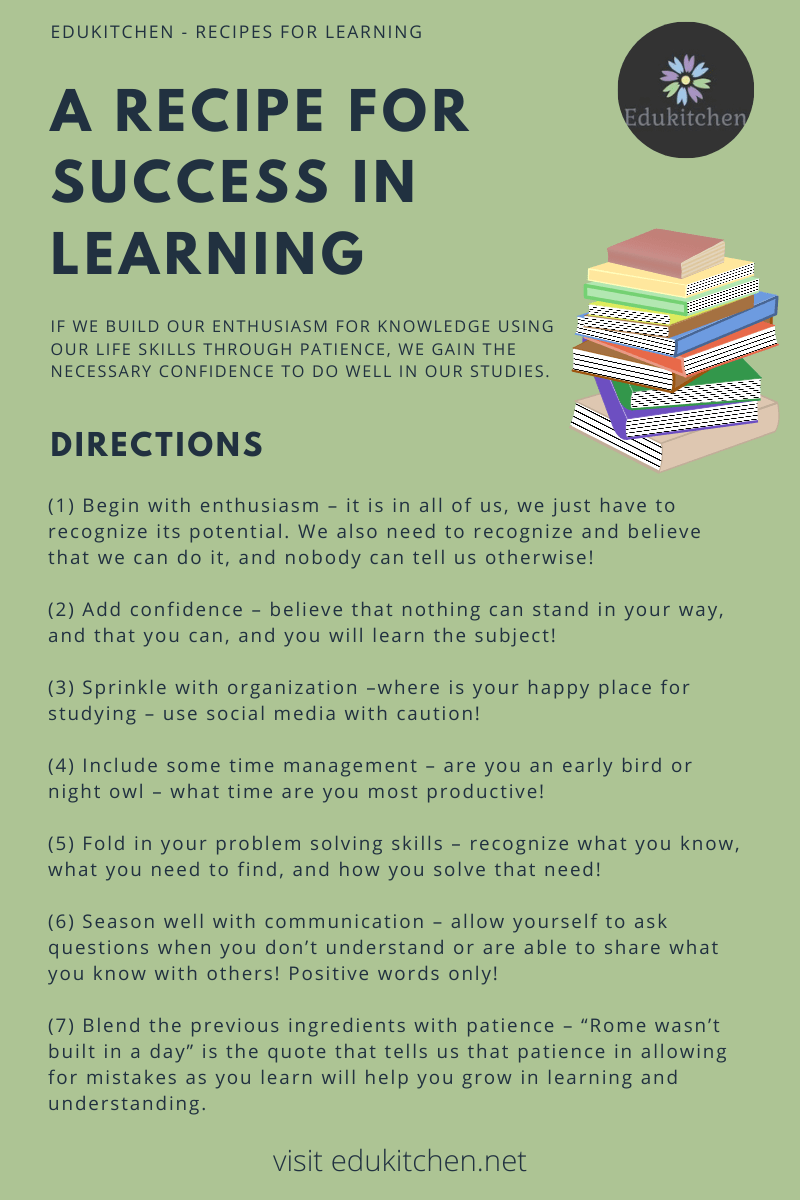
Final Thoughts…
I hope you enjoyed reading this article and found it useful for establishing good relationships between students and teachers.
Relationships are one thing humans need to help make the ups and downs of life more bearable.
One thing teachers have over technology is the ability to make the relationships with students that sometimes bring the much needed happiness into the lives of students.
That is why, no matter how advanced technology gets, it can never replace an amazing teacher!
Share Your Thoughts…
Leave us a comment below to let us know your thoughts on our ideas on the importance of relationship building between teachers and students.


